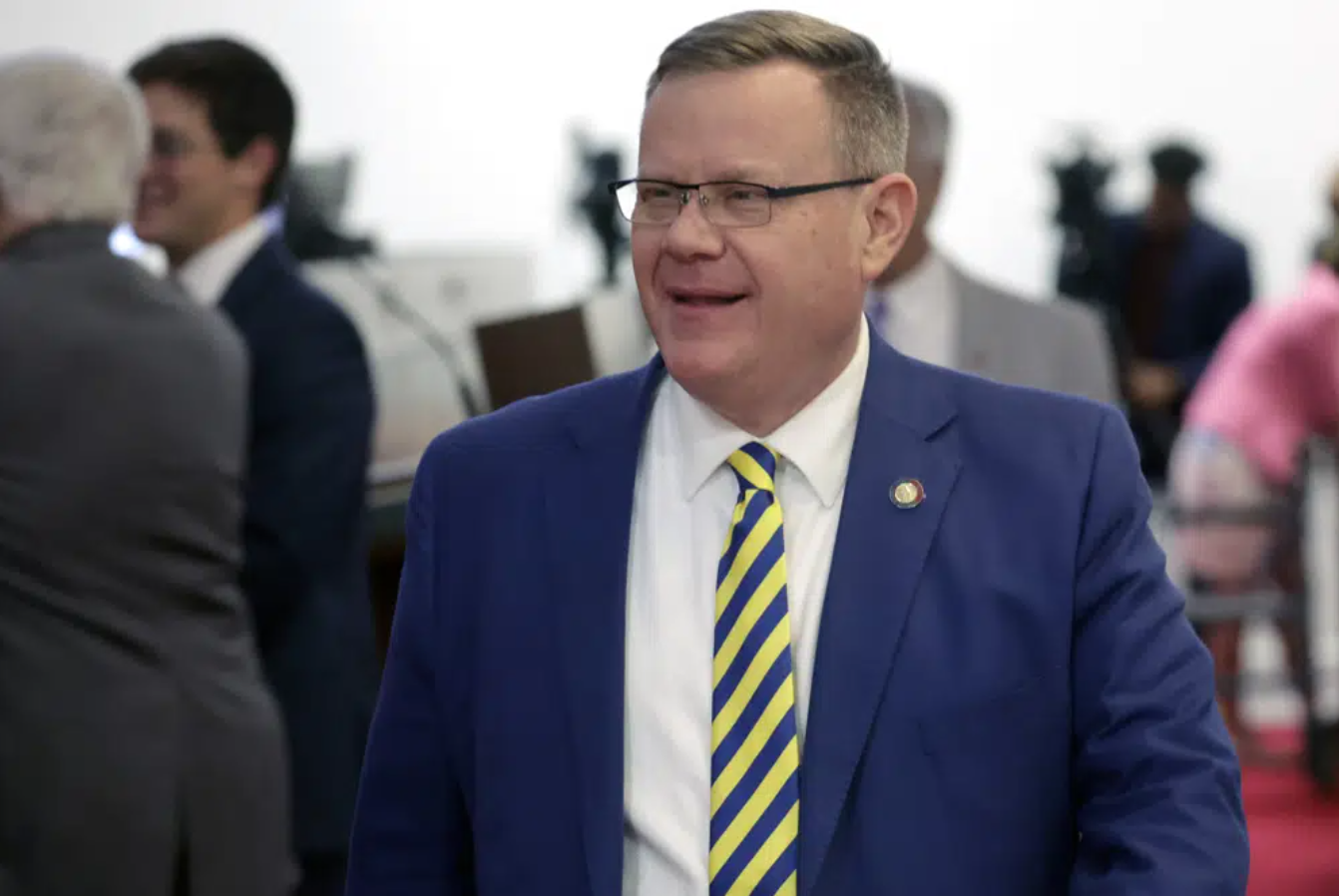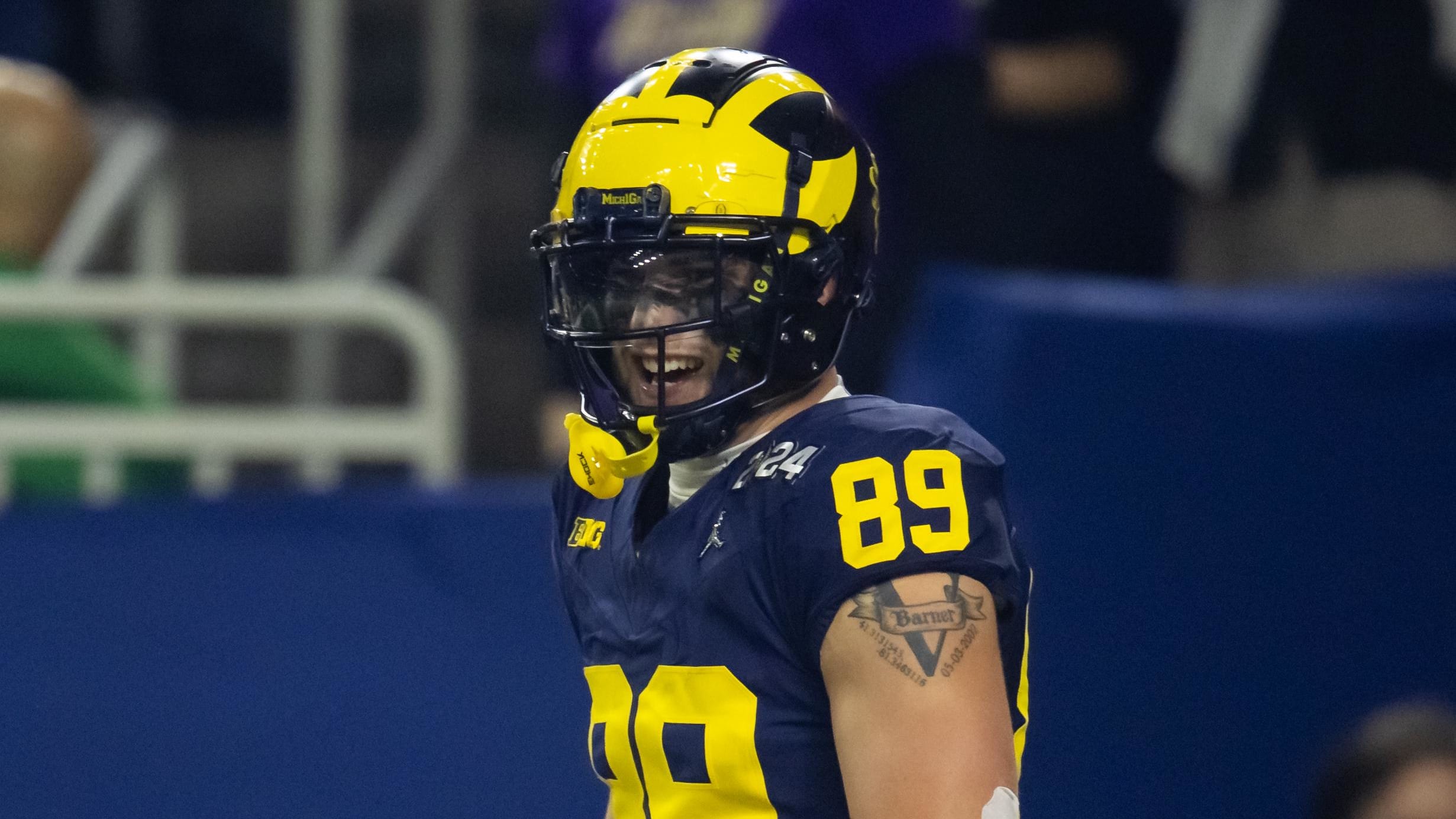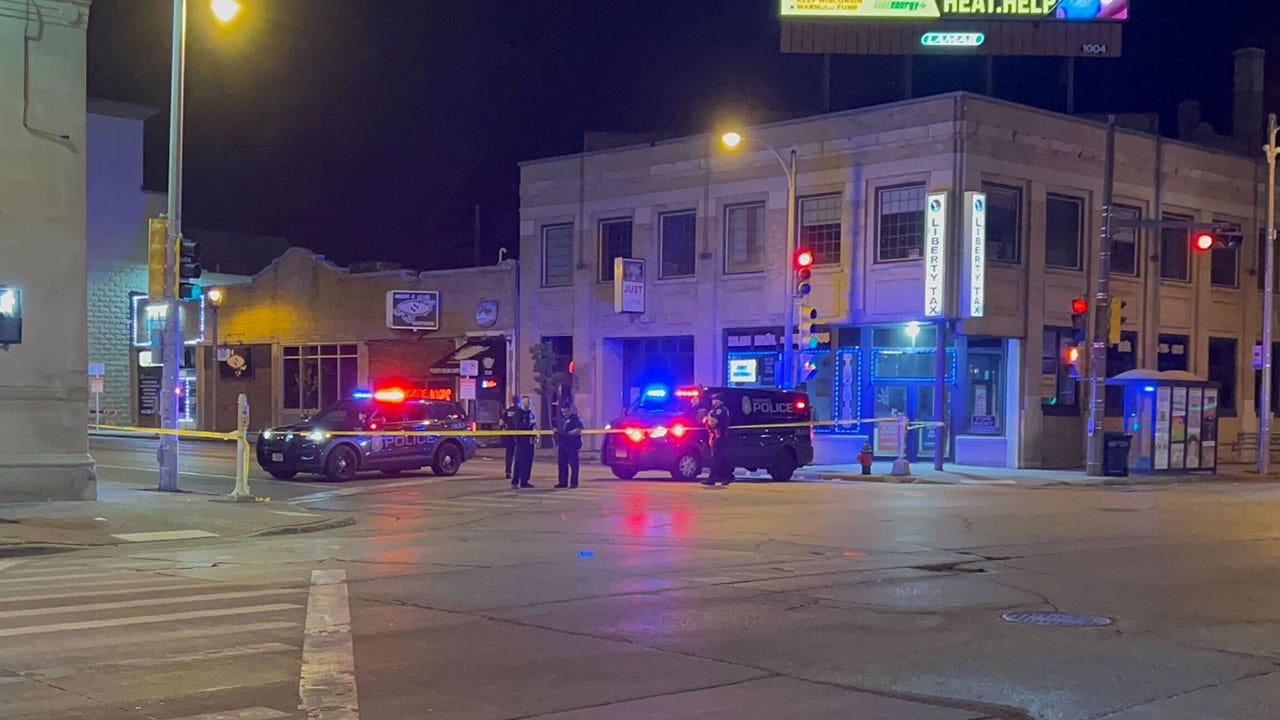North Carolina
North Carolina Legislature Reconvenes To Address Budget, Vouchers as Big Elections Approach – Chapelboro.com

Written by GARY D. ROBERTSON
The North Carolina General Assembly begins its annual work session Wednesday with a little extra money to spend and limited pressing issues to address before key elections this fall and longtime state government leaders depart.
Following their landmark 2023 session that expanded Medicaid, restricted abortion, broadened gun rights, swelled private-school vouchers and weakened the governor, Republicans leading the House and Senate are talking about the traditionally “short” session to be just that — with a goal to finish by early summer.
“We dealt with a lot of weighty issues,” House Speaker Tim Moore, a Cleveland County Republican, told reporters recently. “Are there still some things left to be done? Yes, we’re going to deal with those.”
With all 170 legislative seats up for reelection in November and Republicans who approved last year’s agenda holding the narrowest of veto-proof majorities, party leaders will be careful to advance measures that won’t sway public opinion against their candidates in key districts. Legislation forcing local sheriffs to assist with federal immigration enforcement and locating more funds for the private-school scholarships could qualify.
The legislature’s chief duty in even-numbered years is to adjust the second year of the two-year government operating budget that’s already enacted.
A consensus forecast by the legislature and Democratic Gov. Roy Cooper’s administration says the state will collect an additional $1.4 billion through mid-2025 than previously anticipated. This compares to the $30.9 billion currently set to be spent in the fiscal year starting July 1.
As much as $400 million could be needed to make Medicaid spending adjustments because of a lower federal government match and the higher use of services by enrollees, Rep. Donny Lambeth of Forsyth County, a House budget writer, said this week.
And Moore and Senate Majority Leader Paul Newton said separately that GOP colleagues are prepared to set aside more money for the Opportunity Scholarship Program so that more families in higher-income brackets can receive grants this fall for their K-12 children to attend private or religious schools.
The current budget law did away with the program’s income caps to qualify, leading to a six-fold increase in applications this year.
But the state authority running the program said there isn’t enough to assist all qualifying applicants, and no aid would go to groups of applicants with the highest incomes. It wasn’t clear whether Republicans would seek to fully fund the scholarships for the coming year, which Moore said could require $300 million more.
Still, “I think there’s a high probability that we’re going to make sure the parents who want choice get choice for their children,” said Newton, a Cabarrus County Republican.
Cooper, who is term-limited from running for reelection, also will present his last budget proposal Wednesday. Cooper is hoping GOP legislators will listen to his calls to stop spending on the Opportunity Scholarship program that he’s opposed for years until public schools are “fully funded,” and for teachers to receive sizeable pay raises.
“We need to invest in public schools,” Cooper told reporters recently. “We know that to sustain the workforce of the future for all these jobs we’re attracting, we’ve got to make sure that our public schools are strong.”
On immigration, Newton said he suspects the Senate would take up a bill approved by the House last year that would force sheriffs to help federal agents interested in picking up jail inmates they believe are in the country illegally. Cooper successfully vetoed similar measures in 2019 and 2022, but that’s when GOP legislators lacked supermajorities.
State budget approval was nearly derailed last year when Senate Republicans sought to insert language that would have permitted construction of four more casinos in the state and the sanctioning and regulating video gambling machines statewide. But Republicans from both chambers have suggested discussions about sanctioning the gambling machines could resurface.
General Assembly staff estimated last year that revenue from the machines could generate over $400 million annually by later this decade. That could help make up for revenue losses now projected as approved individual and corporate income tax rates further decline. Republicans have downplayed talk of long-term shortfalls as hasty.
Democratic legislators seeking to halt what they consider bad GOP bills will face the same challenges that began last April when Rep. Tricia Cotham changed her registration to the Republican Party. Her switch secured the veto-proof majority in both chambers. All of Cooper’s vetoes last year were overridden.
“The numbers are what they are,” said House Minority Leader Robert Reives, a Chatham County Democrat. “I can still count and I know that the Republican caucus is going to vote 100% together.”
This short session also marks the last one for Moore, who is likely on his way to Congress in 2025 after a record five two-year terms leading the chamber. He comfortably won his primary election for the Republican-leaning 14th Congressional District.
Featured photo via Associated Press/Chris Seward.
Related Stories

North Carolina
5 years after federal suit, North Carolina voter ID trial set to begin

RALEIGH, N.C. — A federal lawsuit challenging North Carolina’s photo voter identification law is set to go to trial Monday, with arguments expected to focus on whether the requirement unlawfully discriminates against Black and Hispanic citizens or serves legitimate state interests to boost public confidence in elections.
The non-jury trial in Winston-Salem begins more than five years after the state NAACP and several local chapters sued over the voter ID law enacted by the Republican-dominated General Assembly in late 2018.
This litigation, along with similar lawsuits in state courts, delayed implementation of the requirement until last year’s municipal elections. The 1.8 million voters who cast ballots in the March primaries also had to comply. State election data showed fewer than 500 provisional ballots cast because of ID-related issues in the primary ultimately didn’t count.
The November general election — with races for president, governor and other statewide seats — could see turnout three times greater than the primary. And the nation’s ninth-largest state is a presidential battleground where statewide races are often close.
A favorable NAACP ruling from U.S. District Judge Loretta Biggs could block the requirement in the fall. The trial is expected to last several days, with Biggs already signaling in a document that she won’t immediately rule from the bench.
The NAACP lawyers contend the voter ID requirement, along with two other voting-related provisions in the 2018 law, violate the U.S. Constitution and the Voting Rights Act in part because lawmakers enacted them with discriminatory intent.
In a pretrial brief, attorneys for the state and local chapters of the civil rights group cite data showing Black and Latino voters are more than twice as likely to lack a qualifying ID with a photo than white voters. They plan to bring in witnesses who will say they encountered voting problems in the March primary.
Brandon Rivers works to sign up voters at The Roof Above, Aug. 4, 2023, in Charlotte, N.C. A federal lawsuit challenging North Carolina’s photo voter identification law goes to trial Monday, May 6, 2024, with expected arguments focusing on whether the requirement unlawfully discriminates against Black and Hispanic citizens or serves legitimate state interests to boost public confidence in elections. Credit: AP/Chris Carlson
“Absent relief, thousands of North Carolinians will similarly have their right to vote unconstitutionally abridged,” the NAACP lawyers wrote. They also said evidence will show North Carolina lawmakers rushed through the legislation — mere weeks after voters approved a constitutional amendment mandating photo ID — without considering its impact on minority voters.
Attorneys representing Republican legislative leaders and State Board of Elections members defending the law in court said in briefs that the rules impose only a minimal burden on voters.
They point out that the law greatly expanded the number of qualifying IDs compared with what was approved in a 2013 voter ID law that federal judges struck down as discriminatory. Free IDs are provided by county election and Division of Motor Vehicles offices, and people lacking photo ID at the polls should have their votes count if they fill out an exception form or bring in their ID to election officials before the final tallies.
“The General Assembly enacted (the law) after the People of North Carolina mandated the legislature to create a voter ID law. The bipartisan legislation did not have a discriminatory intent, and Plaintiffs cannot overcome the presumption of legislative good faith,” lawyers for House Speaker Tim Moore and Senate leader Phil Berger wrote in a brief. Preventing voter fraud is also a legitimate state interest for the law, the attorneys wrote. Nationwide, however, voter identity fraud is rare.
Biggs, who was nominated to court by President Barack Obama, already has ruled frequently in this case.
In late 2019 she issued a preliminary injunction blocking enforcement of the law, saying it was tainted because the 2013 law had been struck down on similar grounds of racial bias. But the 4th U.S. Circuit Court of Appeals reversed her decision, writing that she had put too much emphasis on the past conduct of the General Assembly when evaluating the 2018 law. When Biggs declined to allow Berger and Moore to join the lawsuit as defendants, they appealed, and the U.S. Supreme Court ultimately sided with them in 2022.
Biggs opened the door for a trial when the state Supreme Court determined the photo ID law comported with the state constitution.
Thirty-six states have laws requesting or requiring identification at the polls, 21 of which seek photo ID, according to the National Conference of State Legislatures.
North Carolina
UNC Basketball: Rutgers transfer Cliff Omoruyi commits to Alabama over North Carolina

Portal season, besides the commitment of Cade Tyson and return of RJ Davis, has been an underwhelming one for Hubert Davis and the Tar Heels thus far. News didn’t get any better on Sunday afternoon as top target Cliff Omoruyi chose Alabama over North Carolina and others.
The 6-foot-11 Rutgers big man was one of multiple centers that the Tar Heel staff recently pushed for to fill the departure of Armando Bacot, but Coach Davis has had zero luck and will still be searching heading into mid-May for a replacement center. After a near silent recruitment, Omoruyi was in Chapel Hill for a visit earlier this week, but it ended up not being enough to get him in Carolina blue.
This miss is extremely concerning for North Carolina, as the transfer portal window has closed and Omoruyi was presumed as the last elite center in this years cycle. For reference, Omoruyi was ranked 12th in On3’s transfer portal rankings, and the next uncommitted center is ranked 210th. As Hubert Davis has shown us in the past, it is all about fit and system more so than ranking, but there have been one too many swings and misses to be content with where the Tar Heels currently are.
Jalen Washington, Zayden High, and James Brown are the front court right now for North Carolina. Although Washington and High have shown flashes, that is a very inexperienced position group that is typically the centerpiece of Tar Heel teams. There’s reason to believe Jalen Washington will have a significantly increased role in 2024-25, but with three remaining scholarships, bringing in someone with a different skillset makes tons of sense for Hubert and his staff.
As all of the portal noise begins to die down, all eyes will be on North Carolina and how they close out what has been a poor performance to date. Talent is still on the market, but needs have to be addressed before the Tar Heels just try to fill out a roster with the best available.
North Carolina
North Carolina Man Wins $837K Lottery Prize After Sister Had a Dream He Found a 'Bunch of Gold'
:max_bytes(150000):strip_icc():focal(749x0:751x2)/david-atwell-lottery-winner-050224-8b81c6822c6f48f88bca968ade73a8e5.jpg)
There’s a healthy combination of luck and dreams involved in winning the lottery, but for one North Carolina man, it was his sister’s dream that foreshadowed his win of over $830,000.
The North Carolina Education Lottery said in a release that David Atwell, of Kannapolis, won $837,187 from the Cash 5 jackpot on April 27.
But according to lottery officials, his sister’s dream predicted his win. “In her dream I found a bunch of gold,” he said, adding, “I guess dreams do come true.”
Atwell purchased the winning ticket for $1, but said he never thought he was the actual winner.
He matched all five numbers to win the jackpot, officials noted. The odds of matching numbers on all five white balls are 1 in 962,598.
Never miss a story — sign up for PEOPLE’s free daily newsletter to stay up-to-date on the best of what PEOPLE has to offer, from celebrity news to compelling human interest stories.
“I was stunned,” he said. “At first I saw the jackpot went back down to $100,000 so I knew someone hit it. I had no idea it was me.”
On April 29, Atwell claimed his winnings, and after federal and state taxes, he took home $598,591, according to officials. He now plans to give some money to his church and pay some bills.
North Carolina has proven to be a location of luck, with Donnie Leviner beating the odds by 1 in 1,598,205 to $2 million lottery prize, lottery officials shared this week. “Something just told me to buy it,” he told officials.
According to lottery officials, Leviner has previously only purchased a few lottery tickets. This time, the 18-year-old man decided to buy the $20 Big Cash Payout ticket — and then he won. After required state and federal tax withholdings, he took home $858,006.
“I was in disbelief,” he recalled.
-

 Politics1 week ago
Politics1 week agoGOP lawmakers demand major donors pull funding from Columbia over 'antisemitic incidents'
-

 World1 week ago
World1 week agoHamas ‘serious’ about captives’ release but not without Gaza ceasefire
-

 Politics1 week ago
Politics1 week agoColumbia University’s policy-making senate votes for resolution calling to investigate school’s leadership
-

 News1 week ago
News1 week agoBoth sides prepare as Florida's six-week abortion ban is set to take effect Wednesday
-

 World1 week ago
World1 week agoBrussels, my love? MEPs check out of Strasbourg after 5 eventful years
-

 Politics7 days ago
Politics7 days agoHouse Republicans brace for spring legislative sprint with one less GOP vote
-

 Movie Reviews1 week ago
Movie Reviews1 week agoThis Never Happened (2024) – Review | Tubi Horror Movie | Heaven of Horror
-

 World7 days ago
World7 days agoAt least four dead in US after dozens of tornadoes rip through Oklahoma

















